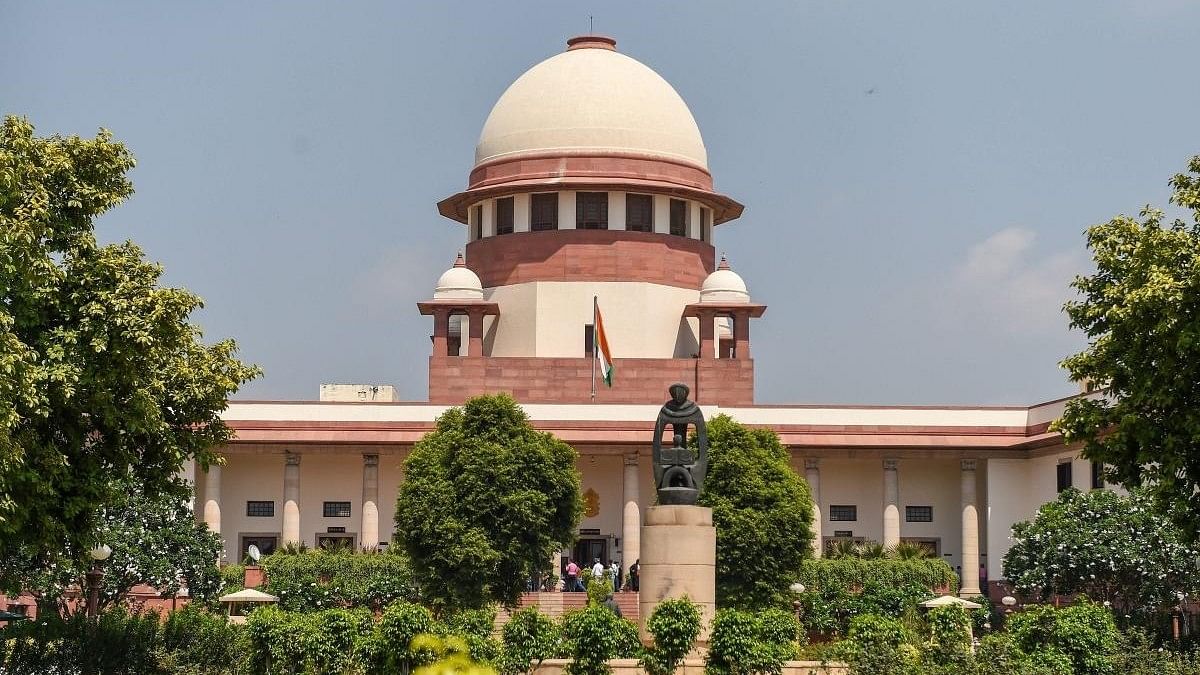
Supreme Court of India.
Credit: PTI File Photo
The Supreme Court Friday said that children born out of void or voidable marriages can claim rights on their parents' ancestral property in joint Hindu families following the Mitakshara system of law.
A bench of Chief Justice of India D Y Chandrachud and Justices J B Pardiwala and Manoj Misra said that a child under Section 16(1) and Section 16(2) of Hindu Marriage Act (HMA) would be legitimate kin under the Hindu Succession Act (HSA).
"The provisions of the HSA 1956 have to be harmonised with the mandate in Section 16(3) of the HMA 1955 which indicates that a child who is conferred with legitimacy under sub-sections (1) and (2) will not be entitled to rights in or to the property of any person other than the parents. The property of the parent, where the parent had an interest in the property of a Joint Hindu family governed under the Mitakshara law has to be ascertained in terms of the Explanation to sub-section (3)," the bench said.
The top court's judgement came upon a reference made in 2011 plea pertaining to the vexed legal issue of whether non-marital children were entitled to a share in the ancestral property of their parents under Hindu laws.
The bench confirmed legitimacy in terms of subsection 1 on a child born from a void marriage and under subsection 2 to a child born from a voidable marriage, which has been annulled.
The bench said the legislature has stipulated in subsection 3 of Section 16 that such a child will have rights in the property of parents and not in the property of any other person.
“While construing the provisions of Section 3 (1) (j) of HSA, 1956, including the proviso, the legitimacy which has been conferred by Section 16 of HMA, on a child born from a void or as the case may voidable marriage has to be read into the provisions of HSA, 1956. In other words, child is legitimate under subsection 1, subsection 2 of Section 16 of HMA would for purpose of section 3 (1) (j) of HSA, fall within the ambit of the explanation related by legitimate…..and cannot be regarded as illegitimate child for the purpose of inheritance to ancestral property ,” the bench said.
It was contended before the top court that Section 16 HMA intended to protect and provide legal status to children born from void or voidable marriages and that intention of the Parliament has been expressly declared pursuant to the 1976 Amendment to the HMA and a limited category of persons has been sought to be conferred a legal status, i.e. children born from void or voidable marriages.
The top court was asked to declare children born from void or voidable marriages as provided in Section 11 and 12 of the HMA as coparceners, who would be entitled to a share in ancestral property as per rules of devolution.
